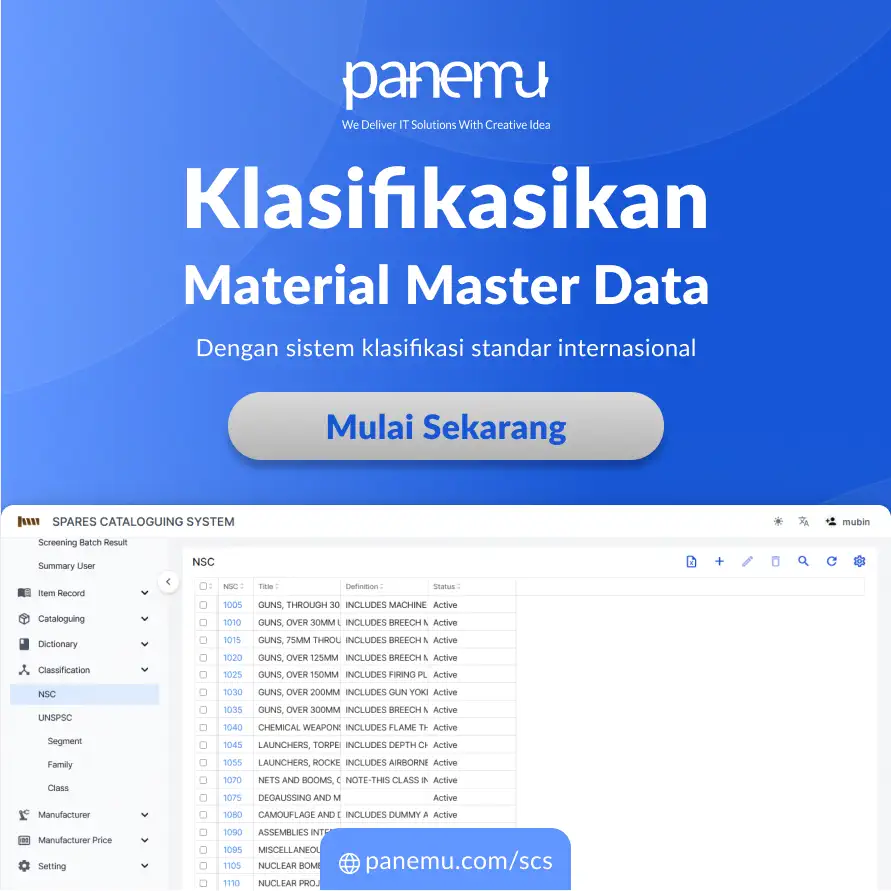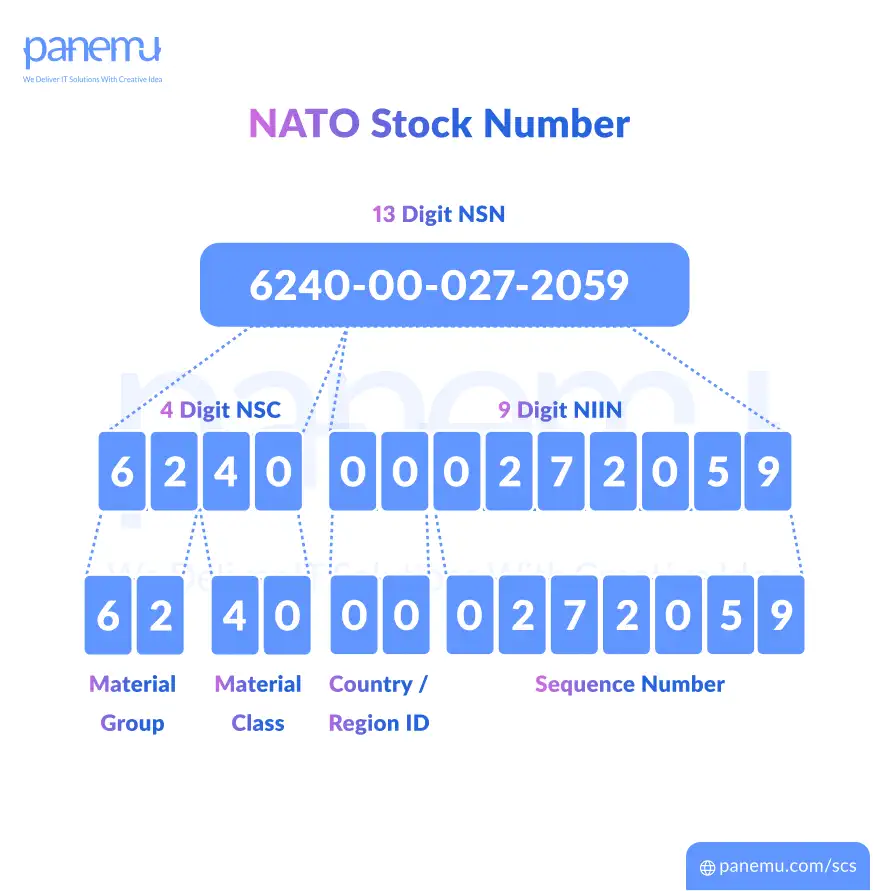When it comes to efficiency and good management in supply chains, there is one aspect that is often overlooked, namely proper product classification. A good supply cataloging system is essential for optimizing a company's operations. One method that has proven successful is the NATO Supply Classification, which is a product classification standard used by NATO and a number of countries in the world.
However, there are still many companies that do not understand the importance of proper product classification and ignore the benefits that can be obtained from a well-organized Supply Cataloging system. In this article, we will explore the importance of optimizing a Supply Cataloging system through proper product classification using the NATO Supply Classification.
Why Is Proper Product Classification Important?
A proper classification system helps companies to identify, track and manage their inventory more efficiently. By using the NATO Supply Classification, companies can classify products based on their characteristics and attributes. This allows companies to easily search, compare and select products that suit their needs. In addition, the right classification also facilitates the process of procurement, inventory management, and reporting.
The problem that often occurs when the supply cataloging system is not optimized is confusion in finding the required product. Workers must spend valuable time looking for products that should be found quickly. In addition, procurement and inventory management errors often occur due to a lack of understanding of the proper classification. This can result in unnecessary costs and scarcity of essential products.
Optimizing Supply Cataloging System through NATO Supply Classification
In essence, optimizing the Supply Cataloging system involves applying proper product classification using the NATO Supply Classification. NATO Supply Classification (NSC) is a classification system that uses numerical codes to classify various products on the market. NSC assists companies in organizing their products according to defined categories, such as electronic equipment, vehicles, weapons and many more.
In implementing NSC, companies must understand the structure and classification criteria used. NSC consists of a numeric code with four levels. The first level is a general category covering sectors such as Fuel, Vehicles and Electronic Equipment. Each general category is then divided into more specific sub-categories. For example, the Vehicles category could be subdivided into Cars, Trucks or Airplanes. This process continues to the last level which specifically identifies the product.
The application of NSC in the Supply Cataloging system needs to be done carefully and based on a good understanding of the company's products. It is important to classify products accurately and according to the guidelines set by the NSC. This involves training and good understanding of the team of catalogers responsible for the classification and management of product data.
Advantages of Optimizing Supply Cataloging Systems through Proper Classification
Operational Efficiency: By optimizing the Supply Cataloging system through proper product classification, companies can improve their operational efficiency. Workers can easily find the products they need and avoid confusion that can lead to delays in the procurement process.
Better Inventory Management: With proper classification, companies can manage their inventory better. They can track inventory accurately, avoid under or overstock, and make more informed procurement decisions.
Cost Savings: With an optimized Supply Cataloging system, companies can avoid costly procurement and inventory management mistakes. They can identify products at better prices, compare offers from various suppliers, and take advantage of volume discounts.
Uniformity and Compatibility: NSC is a classification system used internationally. By adopting NSC, companies can create uniformity and compatibility in their Supply Cataloging system. This allows companies to work with international business partners more easily and efficiently.
Read more important articles :
The Best Strategy to Build a Reliable Supply Cataloging System Why Supply Cataloguing Is A Profitable Long Term Investment Understanding Supply Cataloging: An Important Foundation in Supply Chain Management Practical Steps to Begin the Supply Cataloging Process
Is your company looking for the best solution to optimize the Supply Cataloging system? Panemu is the answer! Panemu is a company that has been providing solutions related to Supply Cataloging for years. They have developed an excellent application called Spares Cataloging System (SCS), which provides complete features for the cataloging process.
SCS was developed by adopting ISO 8000 standards, NATO Supply Classification, NATO Codification System, and Fully customized for NATO Codification System or Standard used from the system company. With SCS, companies can easily compile data according to high data quality standards, carry out accurate product classification, codify, and optimize the process of deleting and checking for data duplication.
One of Panemu's strengths is a reliable team of catalogers. They can assist your company in implementing the Supply Cataloging system accurately. Panemu's cataloger team has a deep understanding of product classification and data management. They are ready to assist you in building an efficient and organized Supply Cataloging system.
Don't miss the opportunity to optimize your company's Supply Cataloging system with the help of Panemu. Contact us by telephone or WhatsApp by CLICK HERE, or visit Our Website to know more about us. Make your company more efficient with the best solutions from Panemu!



